Speak to one of our experts now about this offer
Call our Africa experts on0800 294 9706
Available until open until 8pm
Essential Namibia Self-Drive
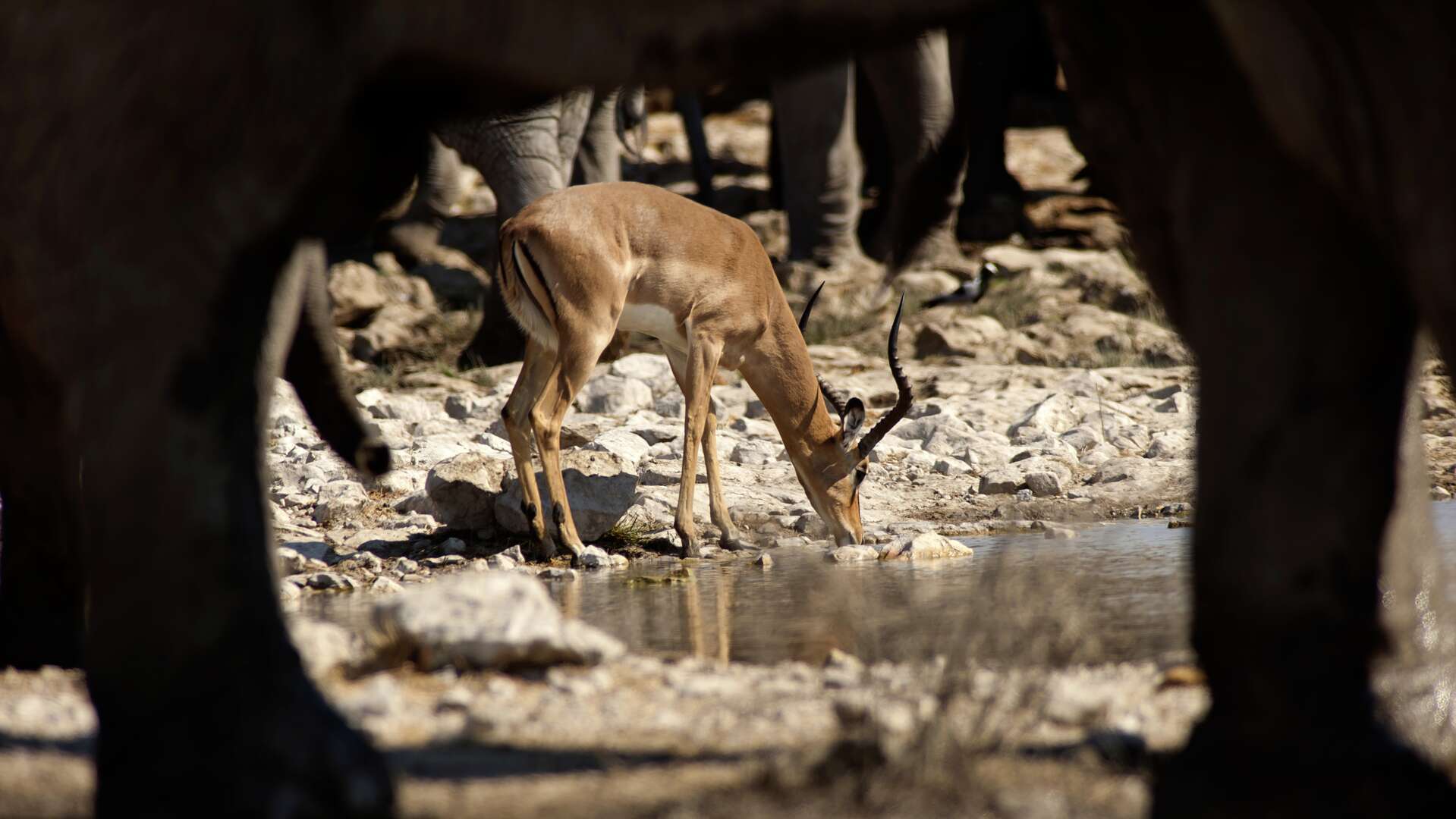
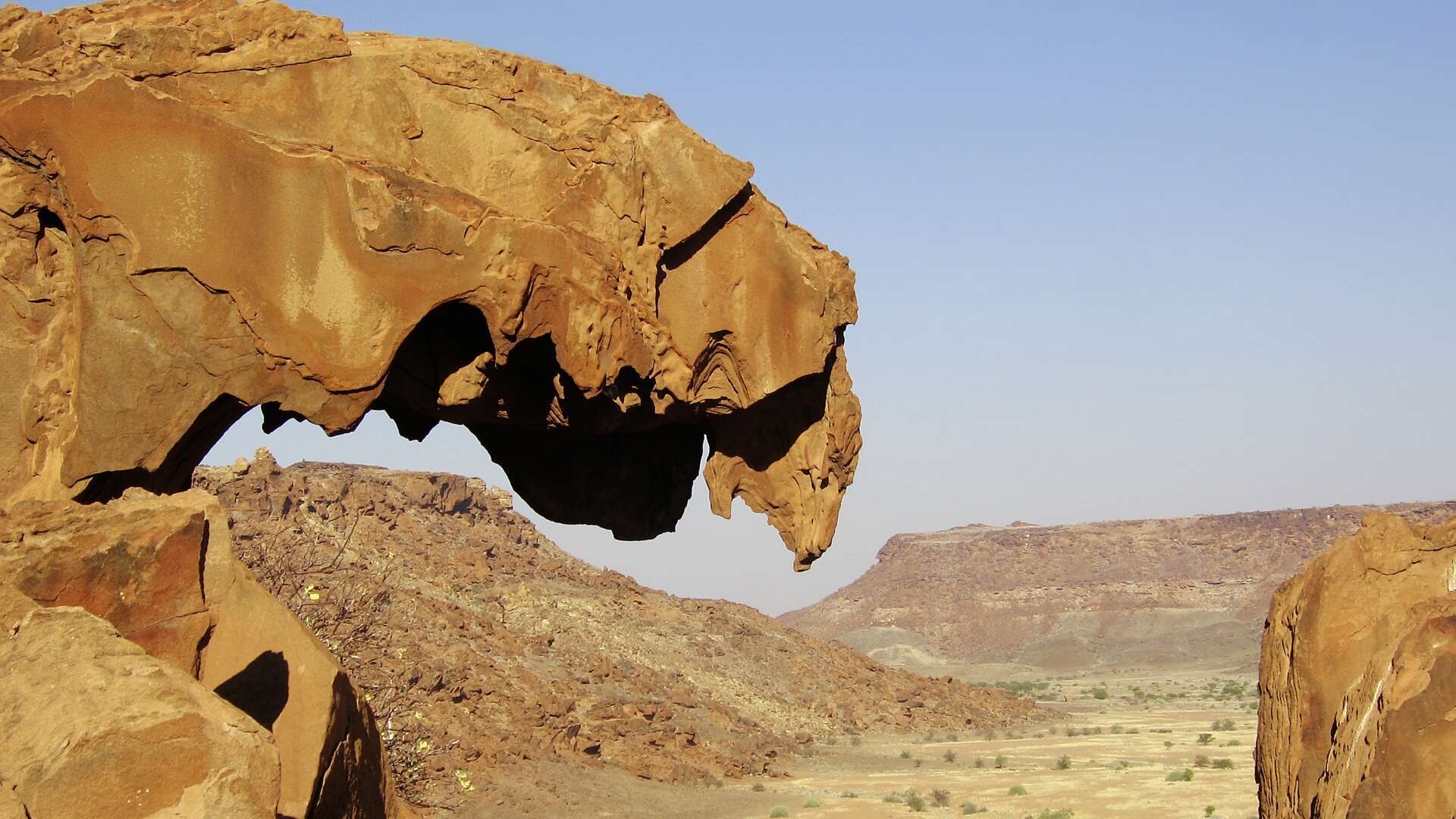
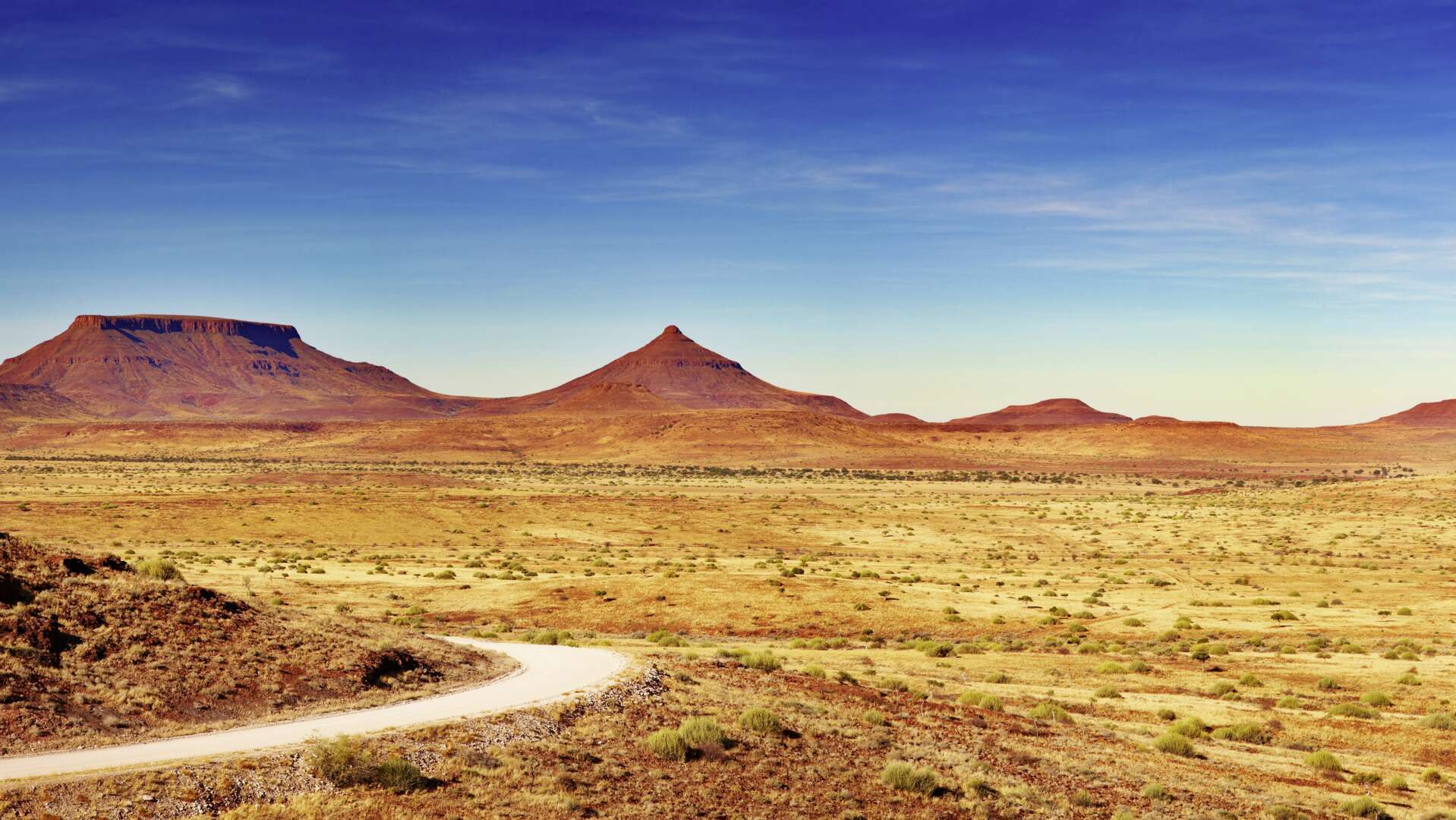
Discover Namibia on this highlights self-drive or guided tour, which takes you through ancient deserts and mountain-studded plains to the wave-worn coastline. Along the way, you’ll scale Sossusvlei’s towering sand dunes, spot marine life in Swakopmund and park beside Etosha’s waterholes for a wildlife bonanza. Round off your adventure with game drives in Okonjima, where you’ll meet endangered species and visit the AfriCat Foundation.
£4,195 - £4,495pp including international flights
Itinerary overview
Day 1
Arrival in Windhoek
Welcome to Namibia. Upon arrival in Windhoek, a driver will transfer you to your boutique hotel in the oldest suburb of the city. Settle in and meet a local tour representative, who’ll go over your itinerary and, if you’re taking a self-drive trip, help you plot your route. Spend the rest of the day as you please. Relax in the tropical garden, take a dip in the pool or explore Windhoek’s German-colonial architecture. After dinner, enjoy drinks around the fire pit ahead of tomorrow’s journey. Overnight at The Elegant Guesthouse.
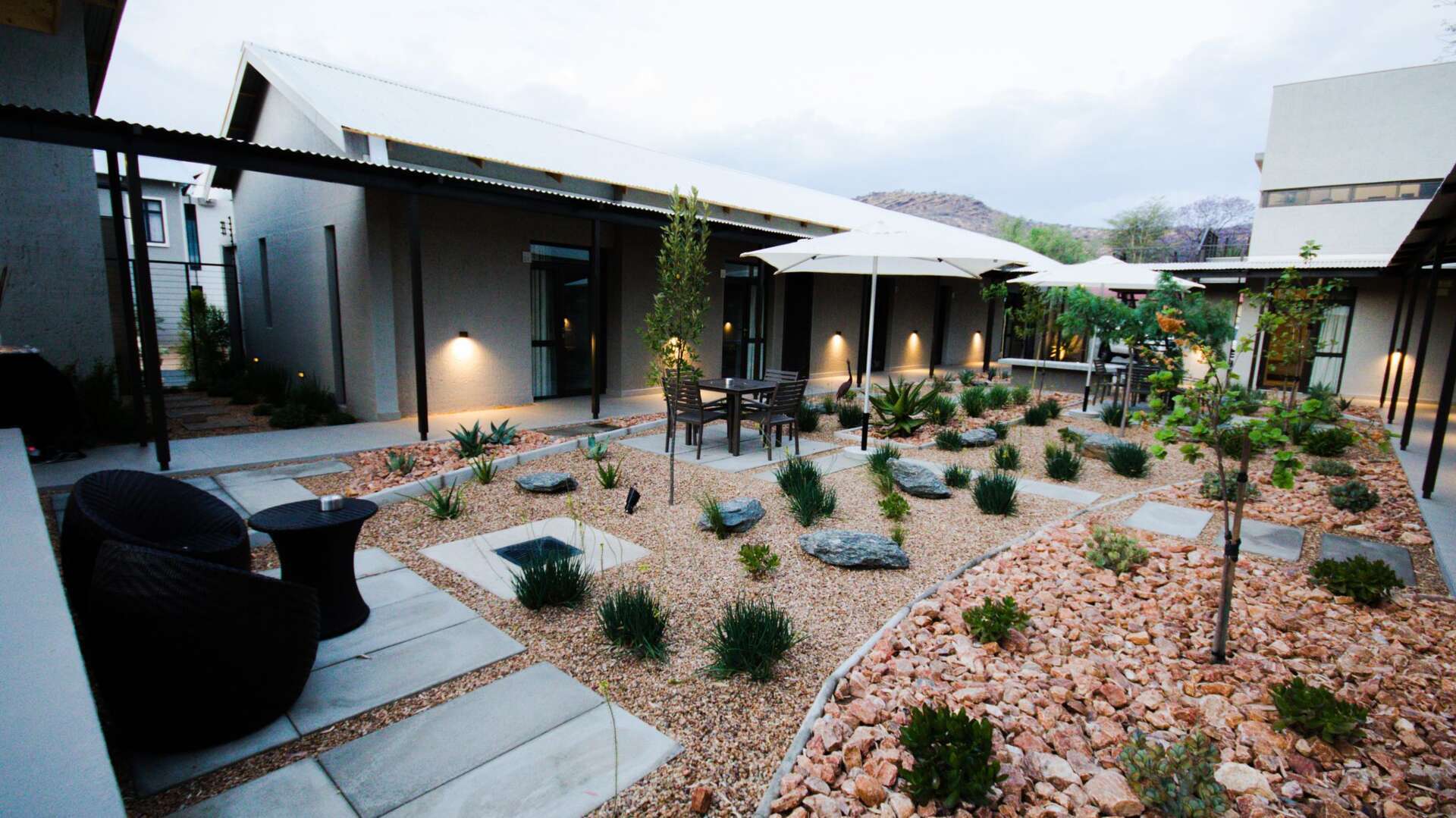
Day 2
Namib Desert
Today you’ll drive four hours south to the Namib, the world’s oldest desert. Check into an eco-friendly camp, where you’ll stay in a luxury, safari-style tent. Take in views of the desert and Naukluft mountains from your private deck, sip a sundowner by the pool and dine in the open-air boma. The beds at Elegant Desert Camp can be rolled out onto the deck so you can fall asleep beneath the African stars. Overnight at The Elegant Desert Camp.
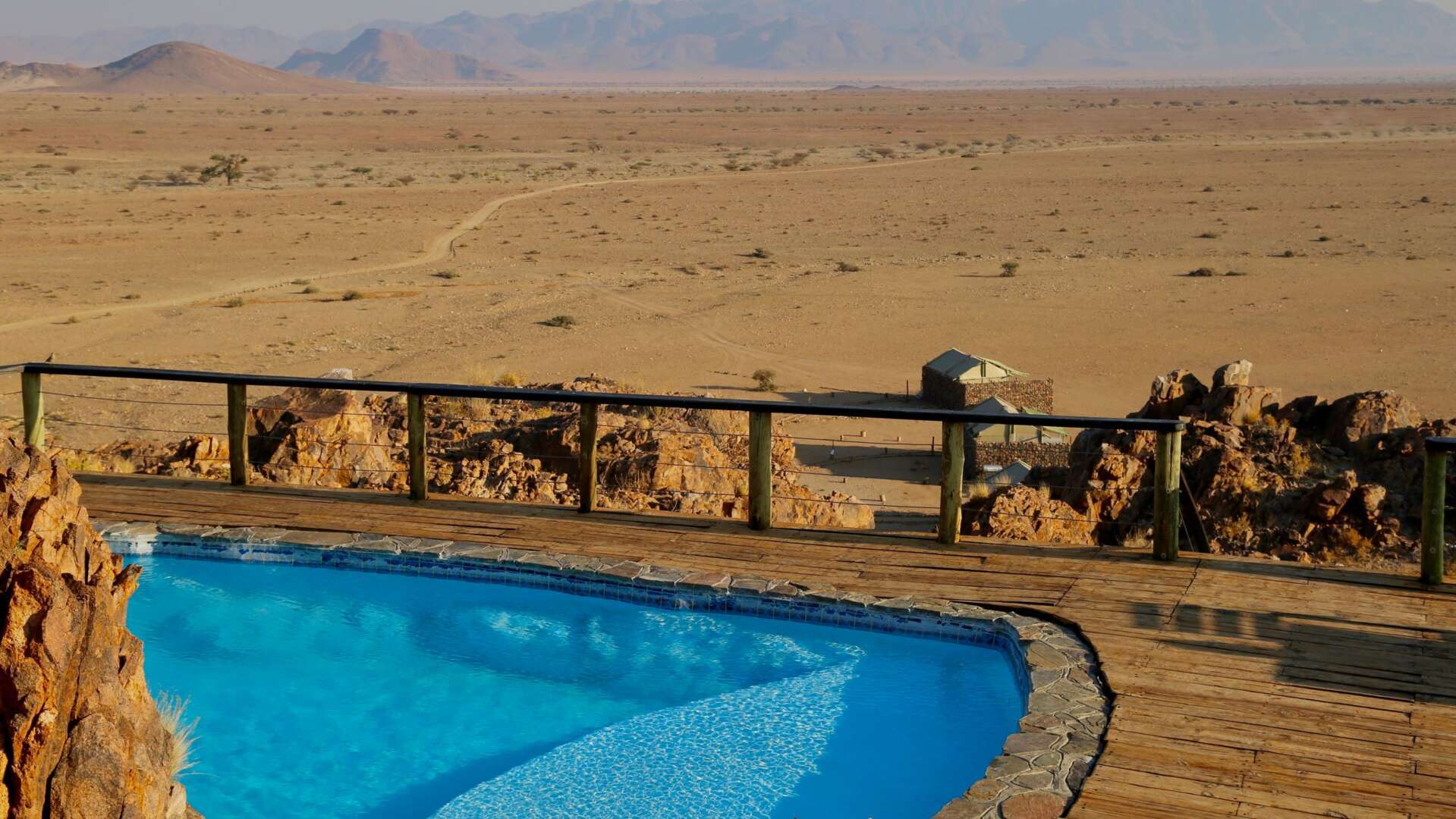
Recommended Hotels
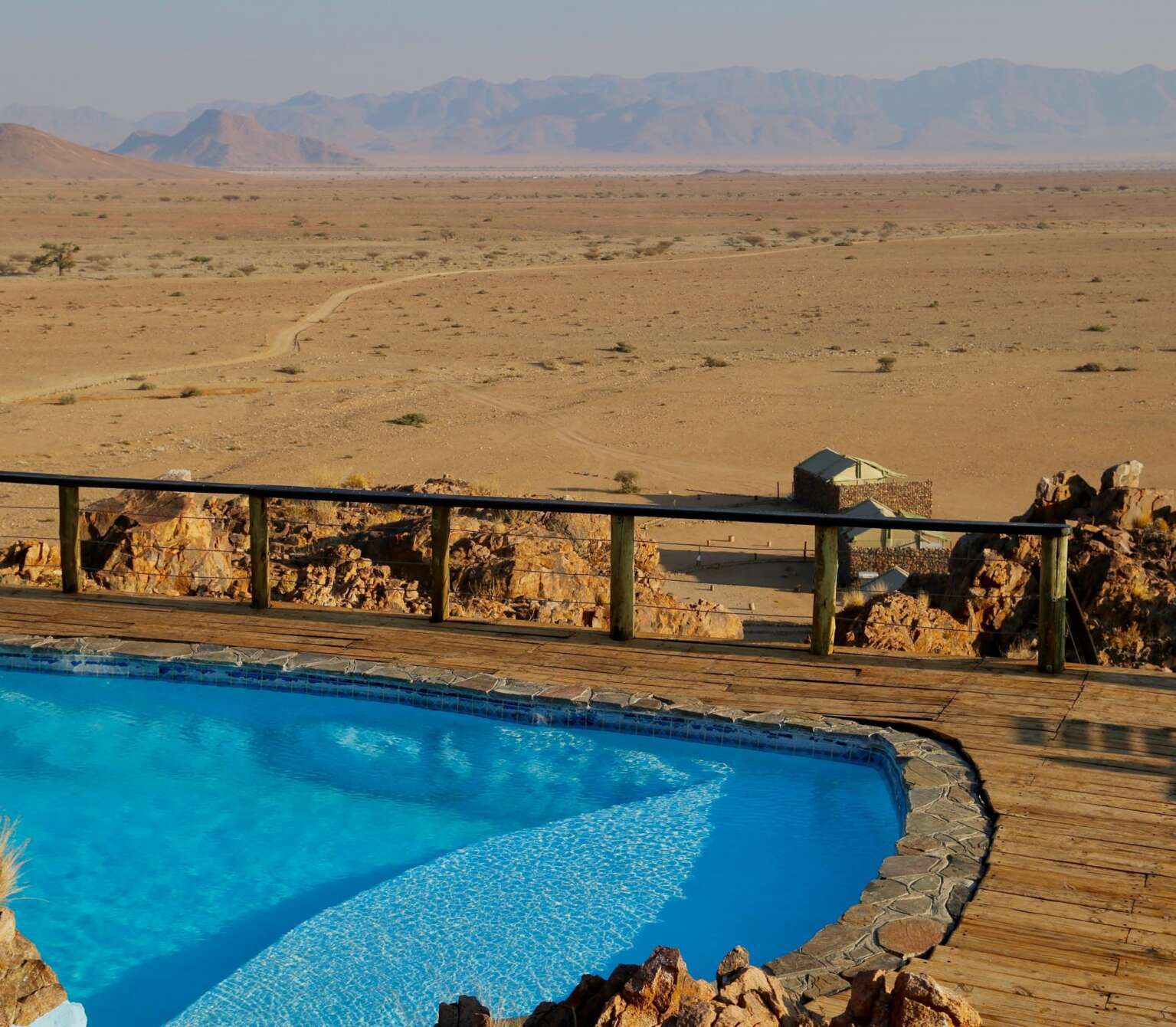
Elegant Desert Camp
Set amongst rugged boulders against a pristine landscape of the Namib Desert lies Elegant Desert Camp.
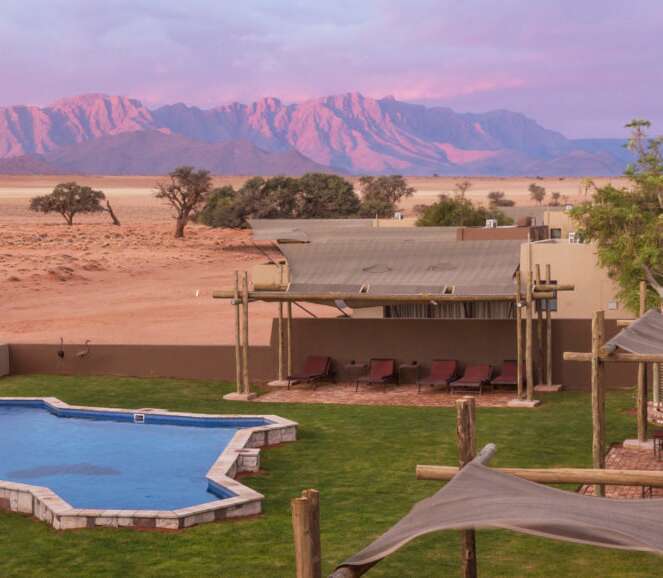
Day 3
Namib Desert & Sossusvlei
Discover the wonders of the Namib Desert today, either on your own or with a guided excursion. Head out early to watch the sunrise at Sossusvlei, a former riverbed home to some of the tallest sand dunes on the planet, including Big Daddy and Dune 45. Scale one of these epic sand masses for panoramic views and visit iconic Deadvlei, a collection of skeletal camelthorn trees stuck in a lunar-like salt flat. On your way back to camp, stop at Sesriem Canyon, a geological gem carved by the Tsauchab River over 15 million years. Overnight at Elegant Desert Camp.
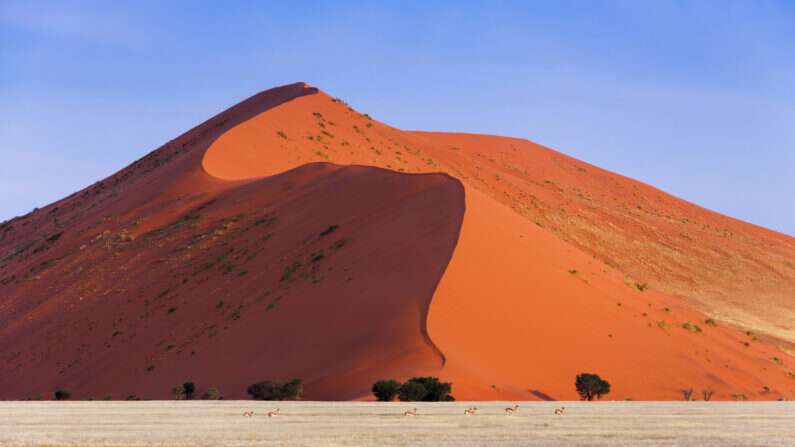
Recommended Hotel

Elegant Desert Camp
Set amongst rugged boulders against a pristine landscape of the Namib Desert lies Elegant Desert Camp.
Day 4
Swakopmund
Today starts with a five-hour drive north to the coastal town of Swakopmund. Sandwiched by the ocean and The Namib, the city is a launching pad for boat cruises and desert excursions. Check into your hotel, then explore this colonial German seaport. Wander streets lined with half-timber houses, stroll on the pier and visit the candy-striped lighthouse. For dinner, you can feast on bratwurst and Bavarian beer at one of the city’s German-inspired eateries. Overnight at Namib Guesthouse.
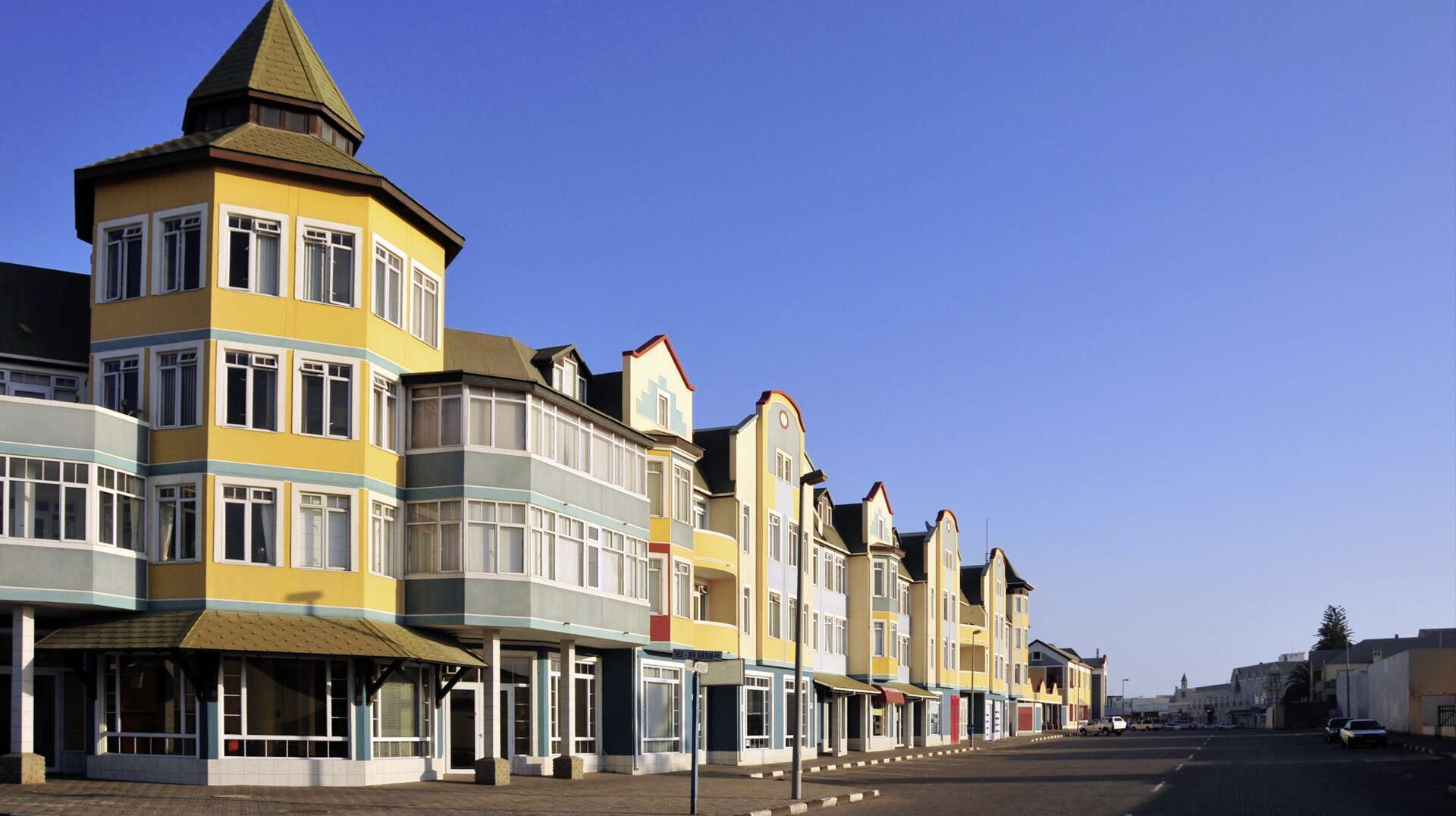
Recommended Hotel
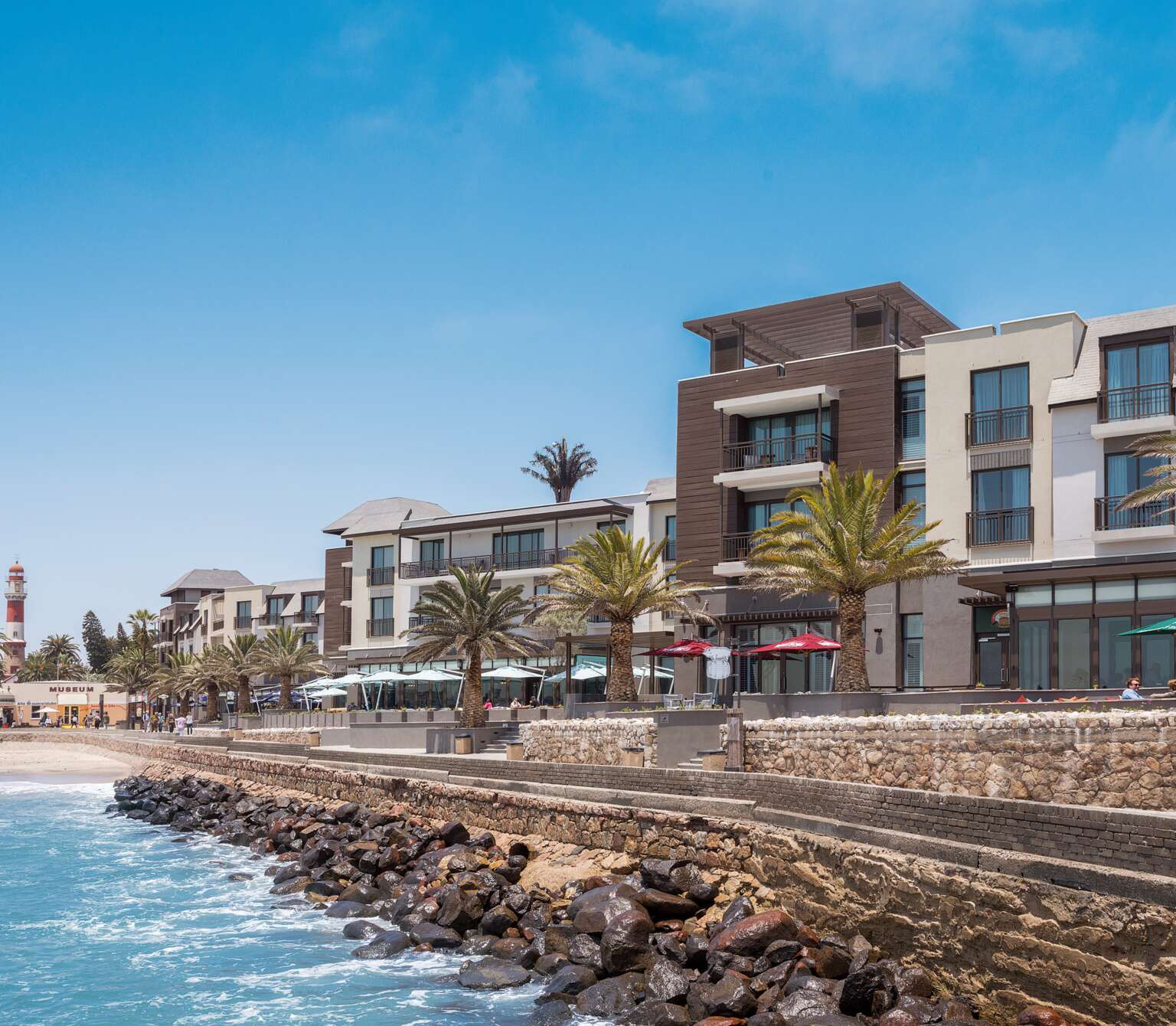
Strand Hotel Swakopmund
The Strand Hotel combines German old-world charm with stylish and contemporary interiors.
Day 5
Swakopmund
Uncover Namibia’s coastal treasures with a variety of optional tours. Take a catamaran cruise on Walvis Bay to spot pelagic birds and the marine Big Five: whales, dolphins, sunfish, leatherback turtles and seals. The highlight is visiting a colony of around 60,000 barking Cape fur seals. If you want to get your blood pumping, take a sandboarding trip to rocket down dunes at speeds reaching 50km an hour. For a gentler adventure, take a cycle through the desert on a fat bike, savouring dune-top views of the coast and looking out for desert creatures. Overnight at Namib Guesthouse.
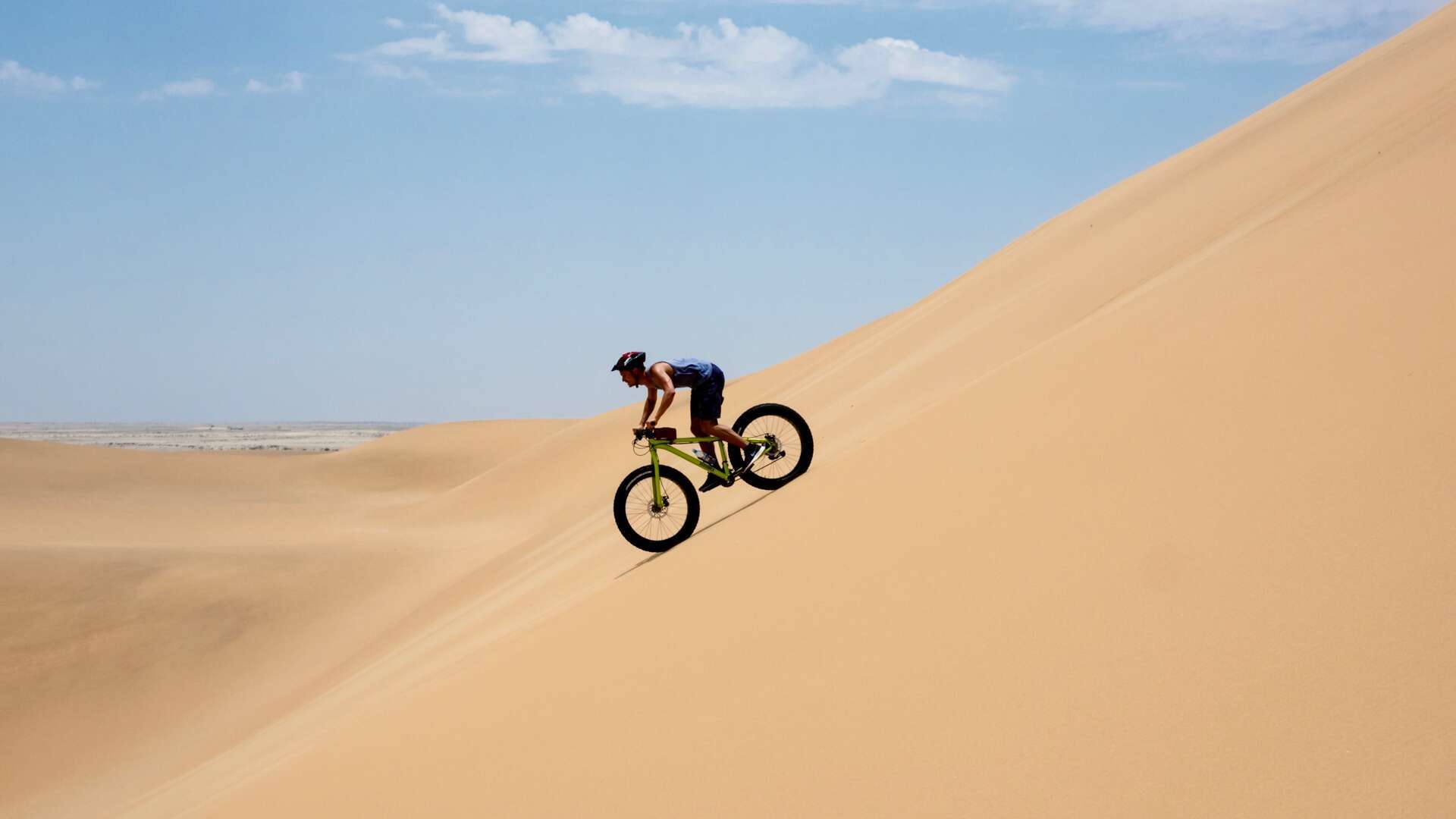
Things to do
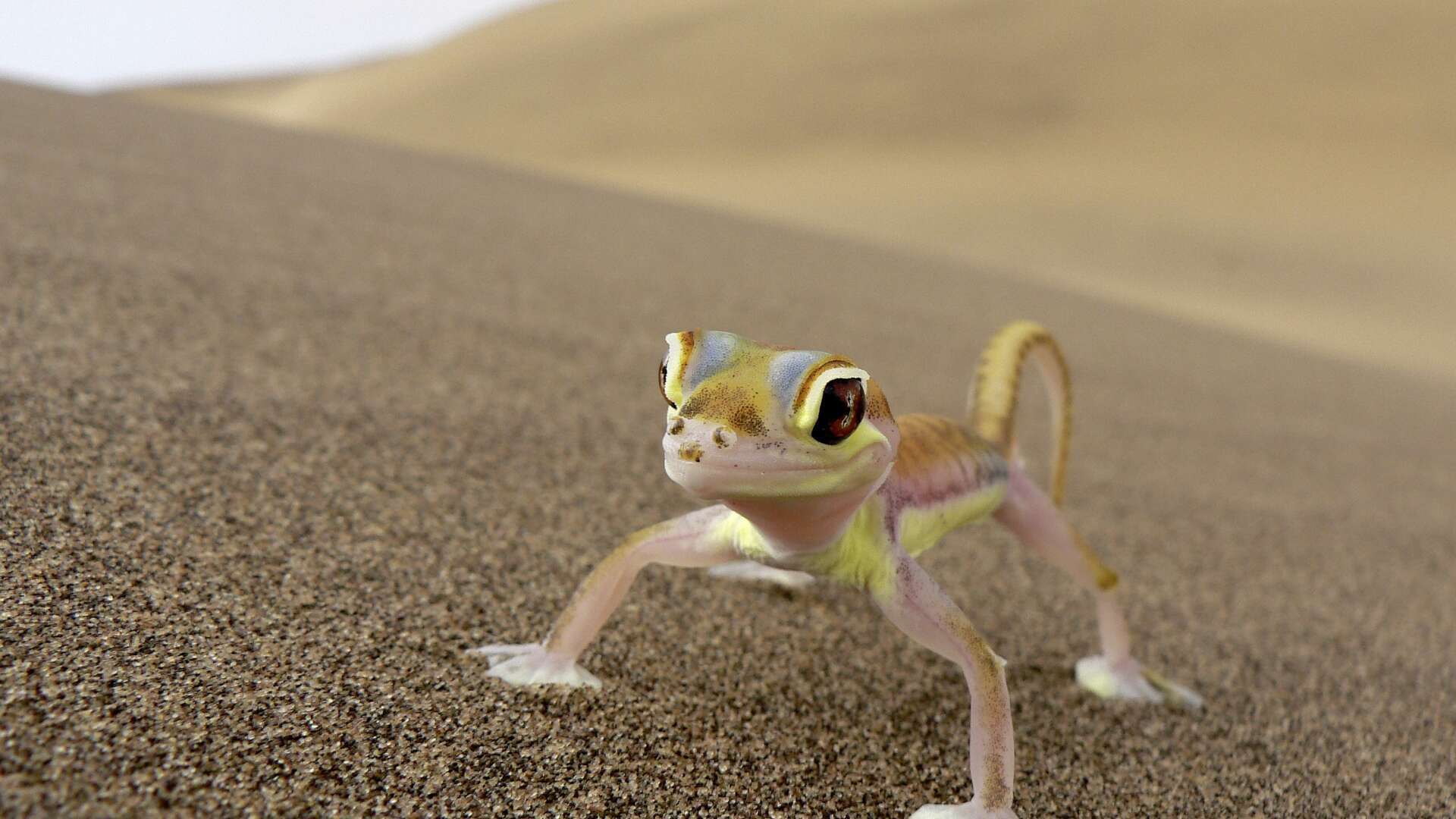

Day 6
Damaraland
Continue your journey north to rugged Damaraland. Here, the vast grasslands are scattered with gorges, petrified forests and mountains. These include Namibia’s highest peak, Brandberg, and the Matterhorn-shaped Spitzkoppe. You’ll stay in Twyfelfontein, a UNESCO World Heritage Site famed for its extensive prehistoric rock art collection. Peruse over 2,500 engravings carved by Namibia’s nomadic hunter-gatherer communities such as the Damara, San and Himba people. Overnight at Twyfelfontein Country Lodge.
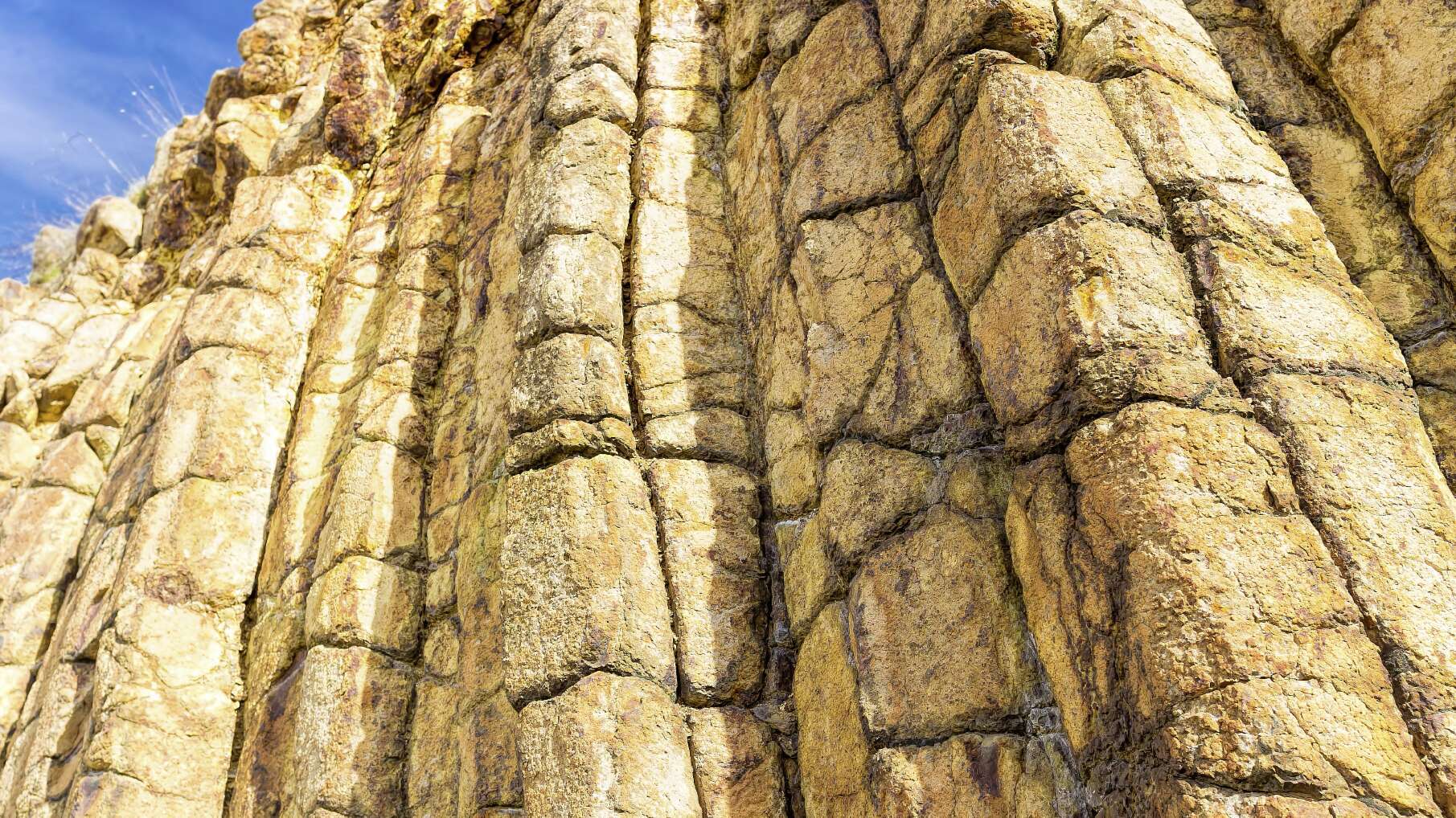

Day 7
Etosha
Drive four hours east today to the wildlife-rich plains of Etosha. This national park is home to Africa’s largest salt pan, which is visible from space. It’s also one of the best places to spot wildlife in Namibia thanks to its spring-fed waterholes that draw a kaleidoscope of African beasts. Settle into your peaceful lodge, which lies on a dolomite outcrop shaded by mopane trees. Take the rest of the day to relax, or to enjoy your first self-drive game drive in the park or an optional 4x4 guided game drive. Overnight at Etosha Toshari Lodge.
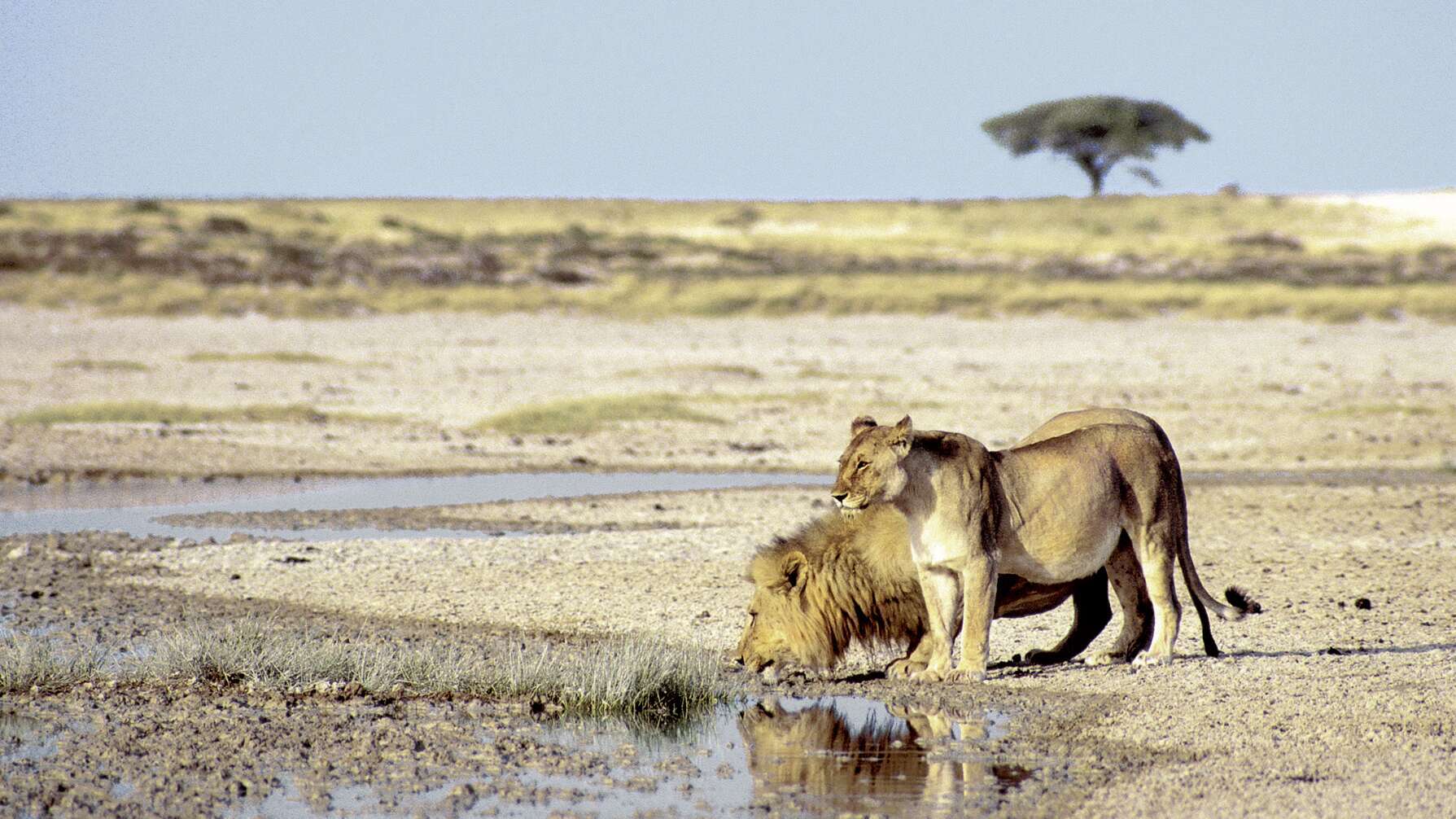

Day 8
Etosha
Spend today on a self-drive safari in Etosha National Park. The waterholes are particularly impressive during dry season when animals flock to these vital water sources. Look out for over 114 species of mammals and 350 bird species. Highlights include bathing elephants, big cat hunts and colourful birdlife. Travel on to your next camp, where you’ll stay in a luxe thatched bungalow. Cool off with a swim followed by a cold sundowner overlooking the camp’s active waterhole. Overnight at Onguma Forest Camp.
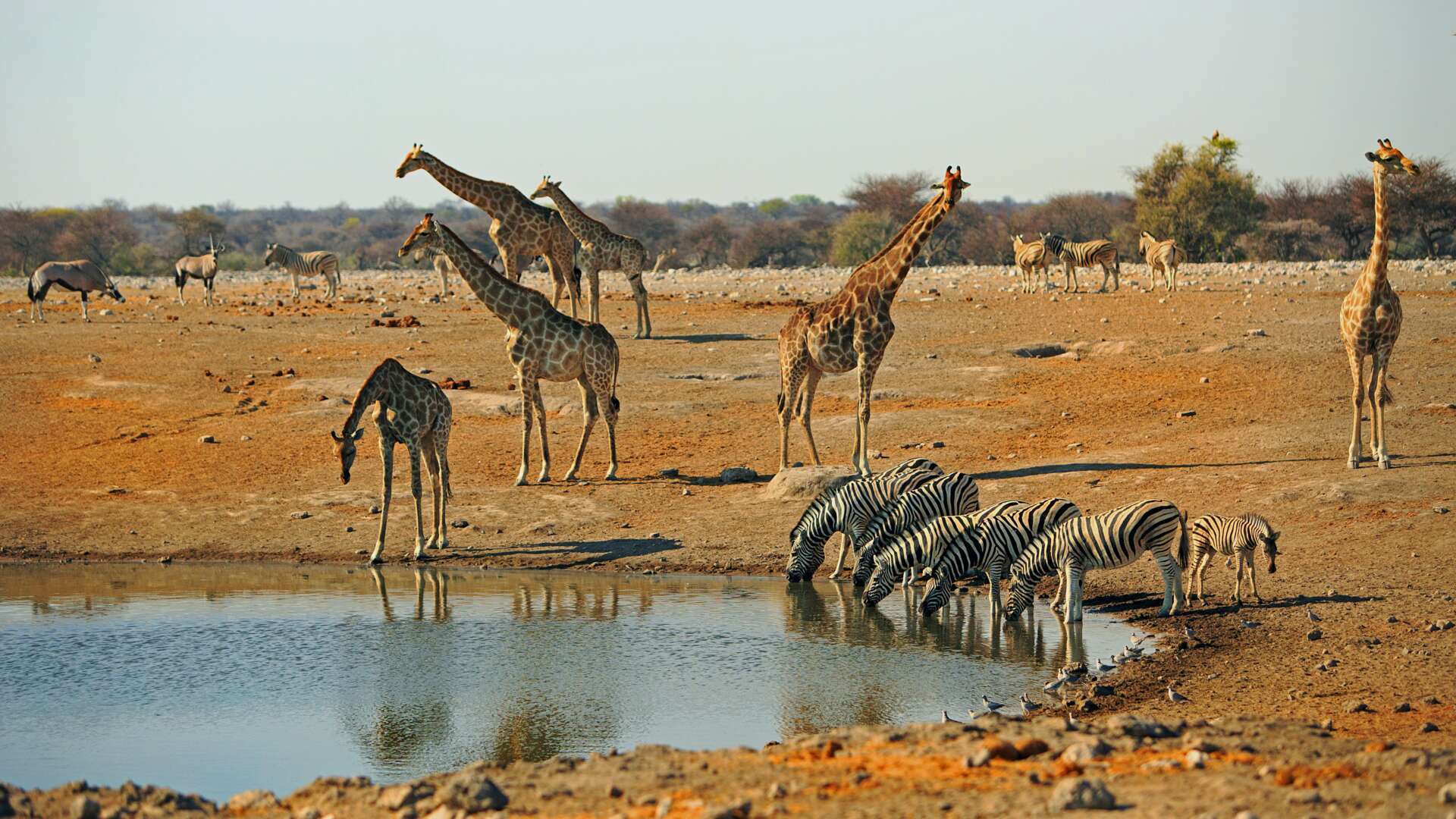

Recommended Hotels
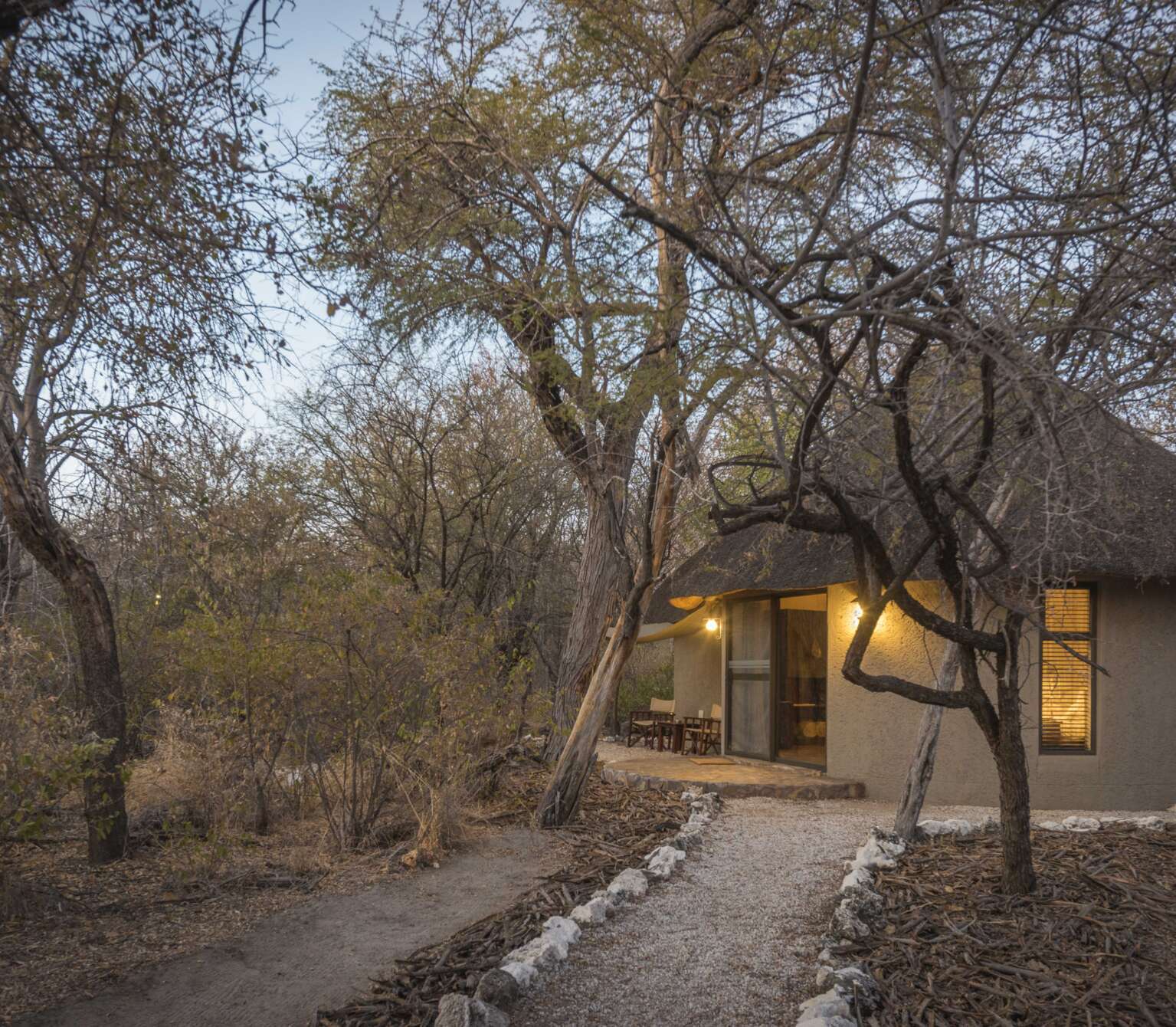
Onguma Forest Camp
In the local Herero language, Onguma means ‘the place you don’t want to leave’ which perfectly describes Forest Camp.
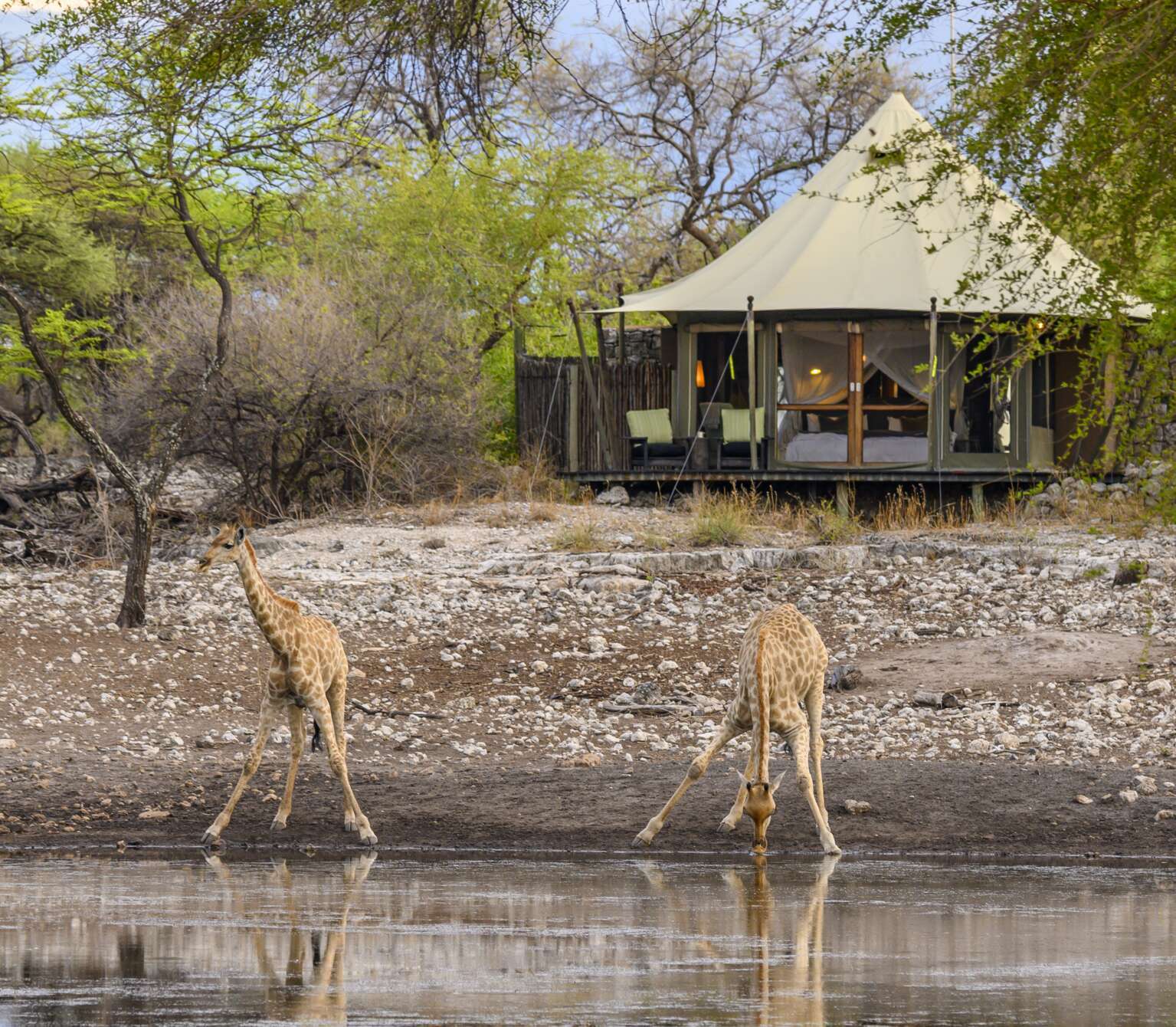
Day 9
Etosha
Enjoy an early-morning game drive in Etosha National Park, courtesy of your lodge. Travel in an open safari vehicle with an expert guide, who’ll take you to the top places in the park for observing animals. Along the way, watch the sunrise over the plains. There’ll be plenty of opportunities to photograph wildlife and learn about Etosha’s vegetation and geology, including its salt pan, which was once a colossal lake. If you’re visiting during the rainy season, the pans may have transformed into glassy lagoons that attract algae-munching flamingos. End the day with a sundowner game drive on the Onguma Reserve. Overnight at Onguma Forest Camp.
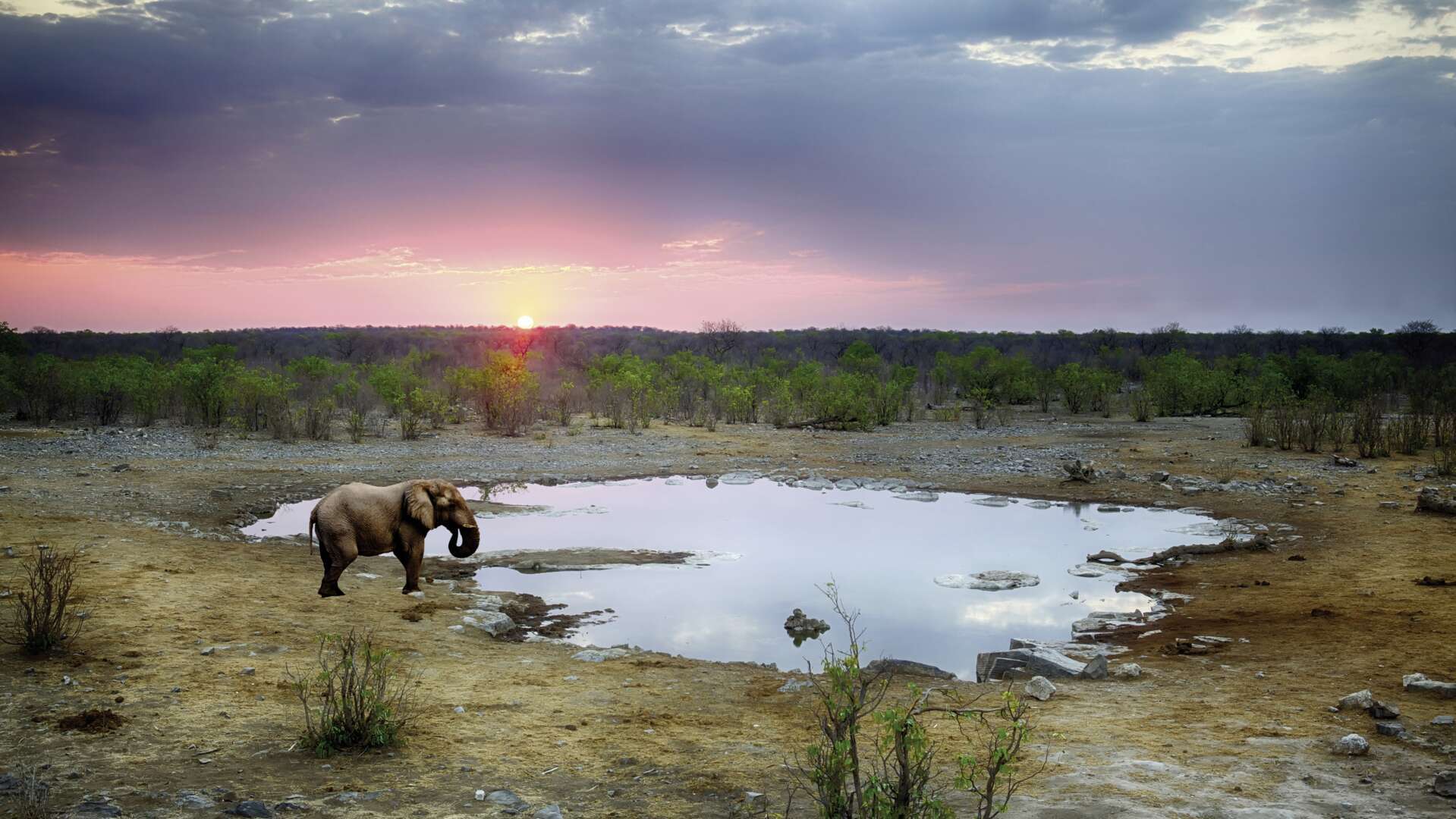
Recommended Hotel

Onguma Forest Camp
In the local Herero language, Onguma means ‘the place you don’t want to leave’ which perfectly describes Forest Camp.
Day 10
Okonjima
After breakfast, drive four hours south to Okonjima, a 22,000-hectare nature reserve. Visit the on-site AfriCat Carnivore Care Centre to learn all about the non-profit foundation’s work and visit some of their rescued cheetahs. In the afternoon, you'll head out for a game drive with one of the lodge’s experienced guides. Thanks partly to the AfriCat Foundation, Okonjima is home to Namibia’s largest density of leopards, some of which have been radio-collared for research purposes. Look out for these stealthy big cats, as well as other endangered species that live in the reserve, from rhinos to brown hyenas and pangolins. Overnight at Okonjima Plains Camp. Ask our travel experts about adding an additional night here to enjoy all the reserve has at a more relaxed pace.
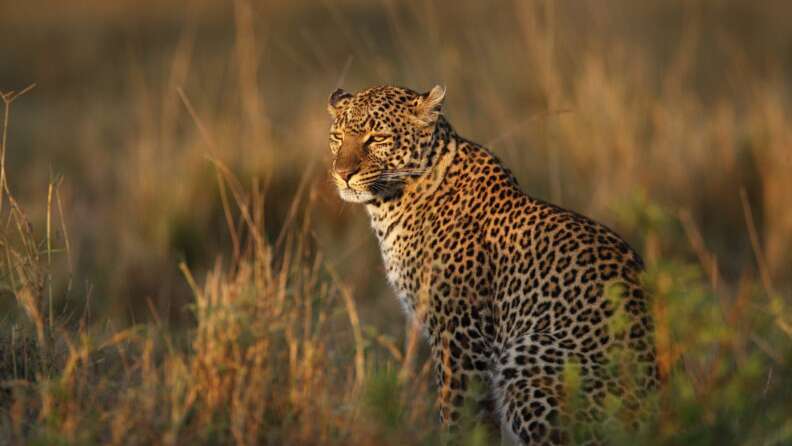
Recommended Hotel
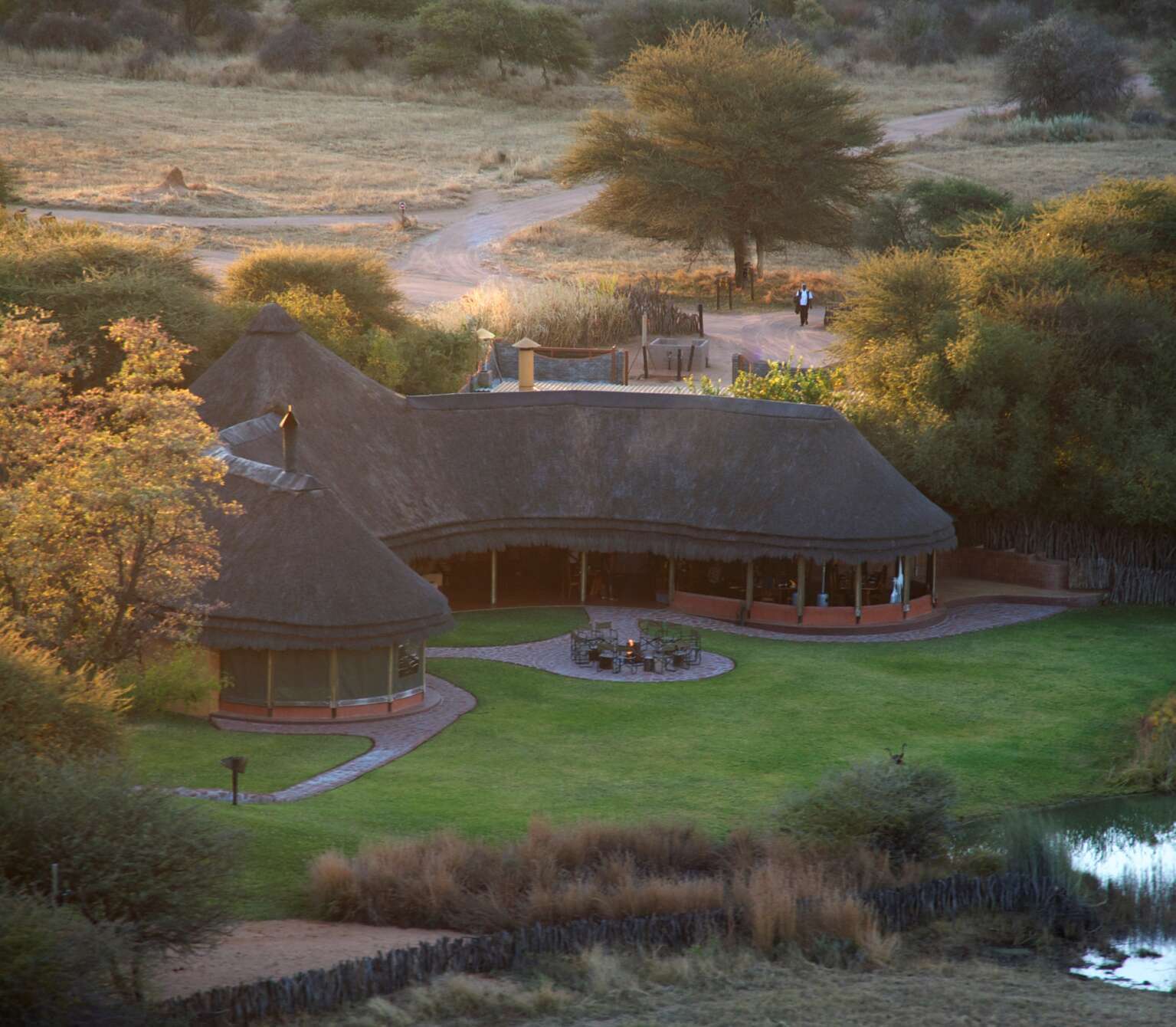
Okonjima Bush Camp
Okonjima Bushcamp lies on the Okonjima Nature Reserve, a former cattle ranch that’s now a conservation success story and home to the AfriCat Foundation.
Day 11
Okonjima & Departure
Drive back to Windhoek this morning in time for your onward flight.
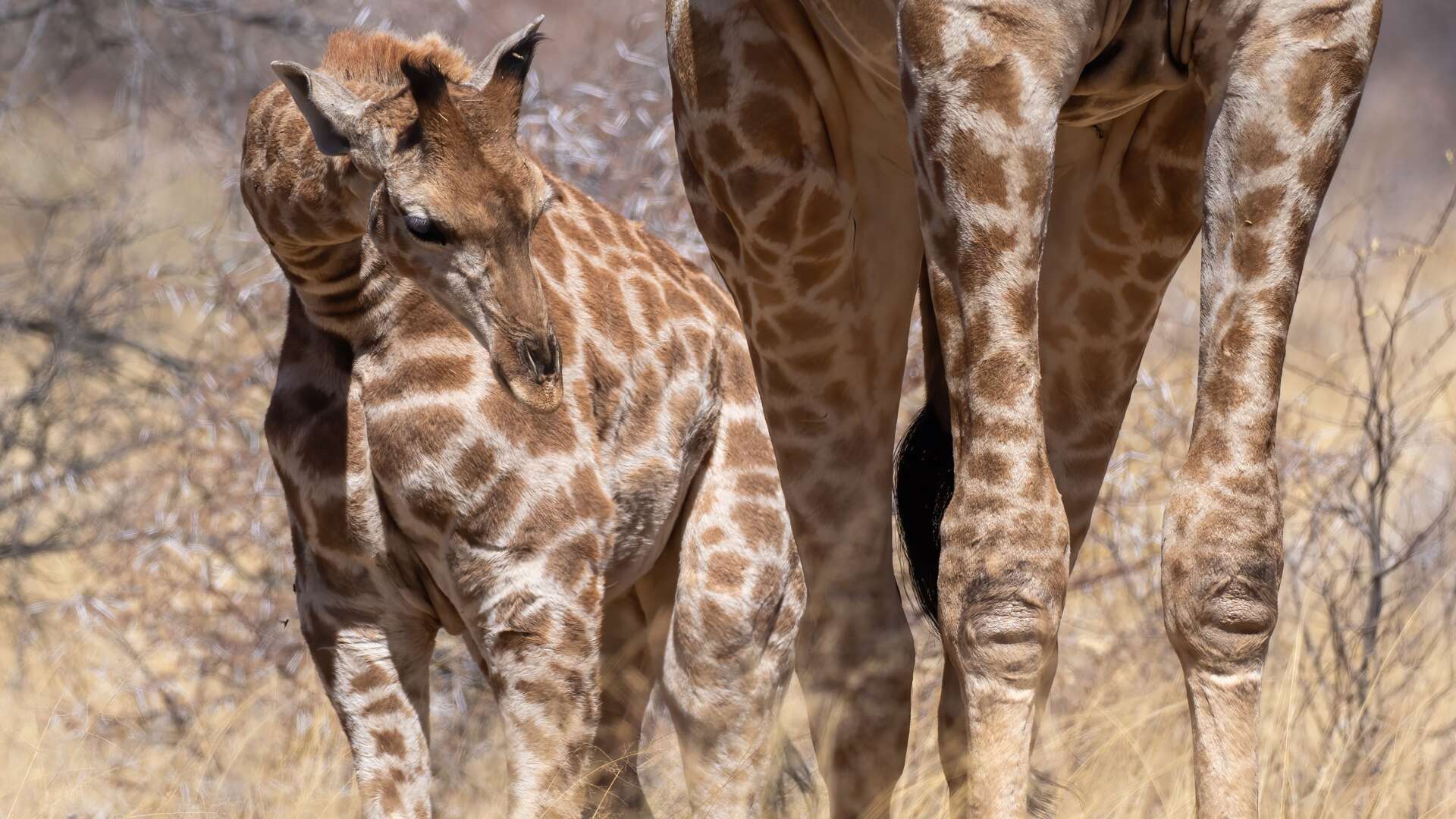
Guide price information
Low Season
01 Jan - 30 Jun, 01 Dec - 30 Dec
£4,195pp
High Season
01 Jul - 30 Nov
£4,495pp
Guide price information is based on the included flights from London, accommodation, transport and experiences detailed in the itinerary above. Guide prices do not include optional things to do. Call us for up to date prices – the cost of your holiday depends upon the time of year you travel, how long you go for, preferred departure airport, airlines, hotels and things to do. Based on 2 people sharing.
Other Itineraries
Sorry, your hotel is no longer available
Please check alternatives
-
{{item.body}}
-
{{item.body}}
Choose a departure date
{{store.searchDuration}} nights
Enter rooms & guests
Checking prices & availability

{{term}}, {{formattedDate}} for {{searchDuration}} nights
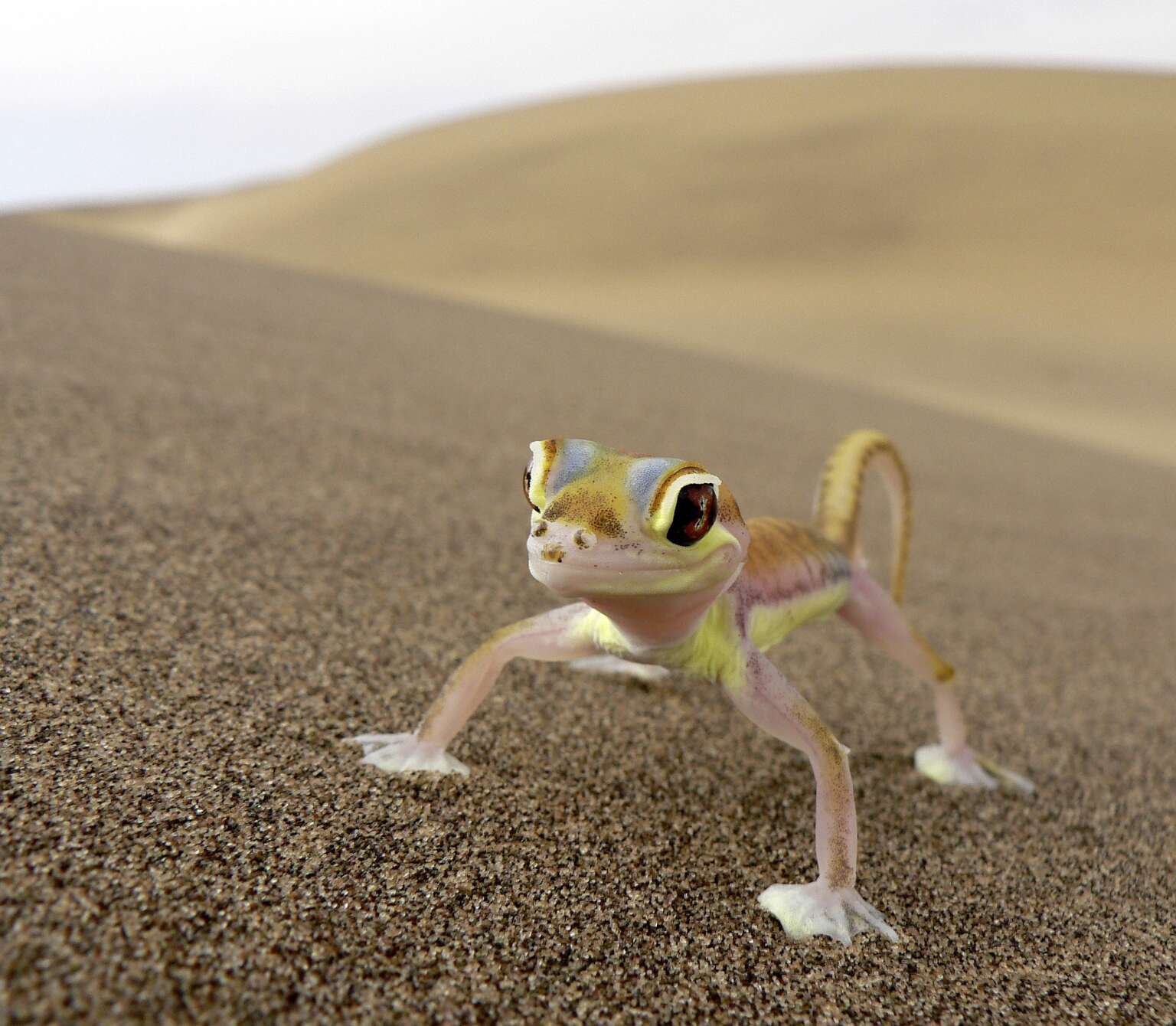
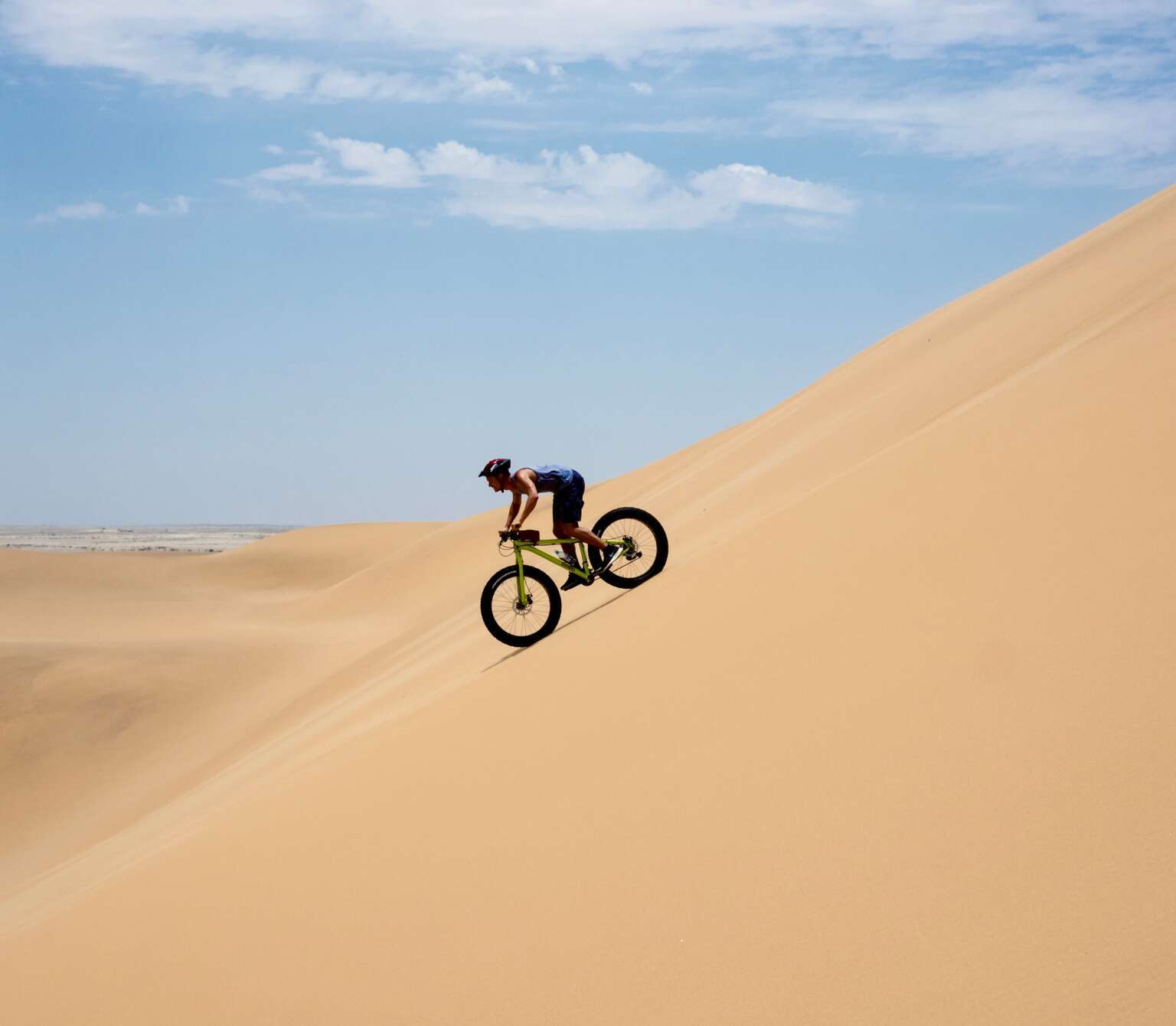
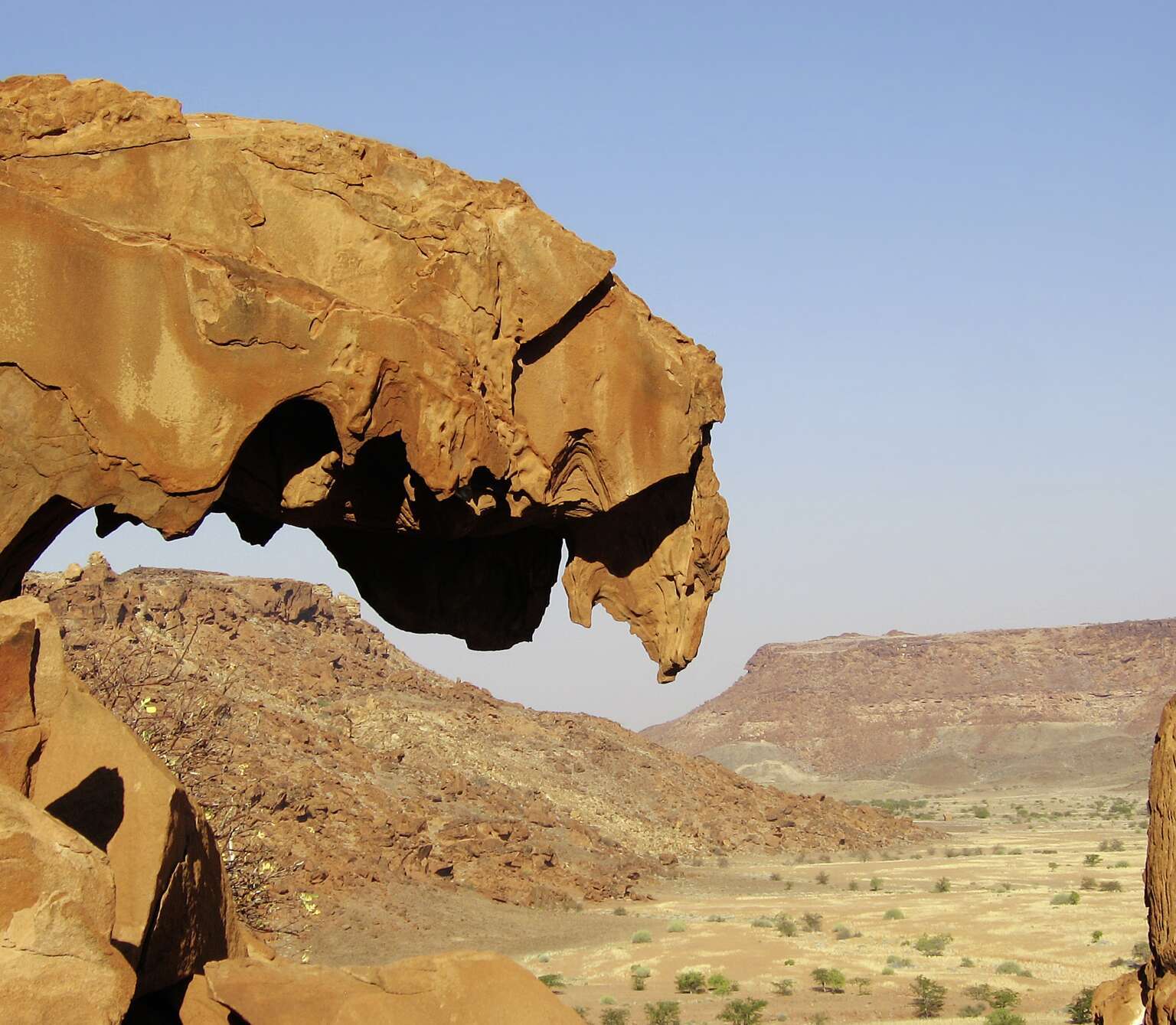
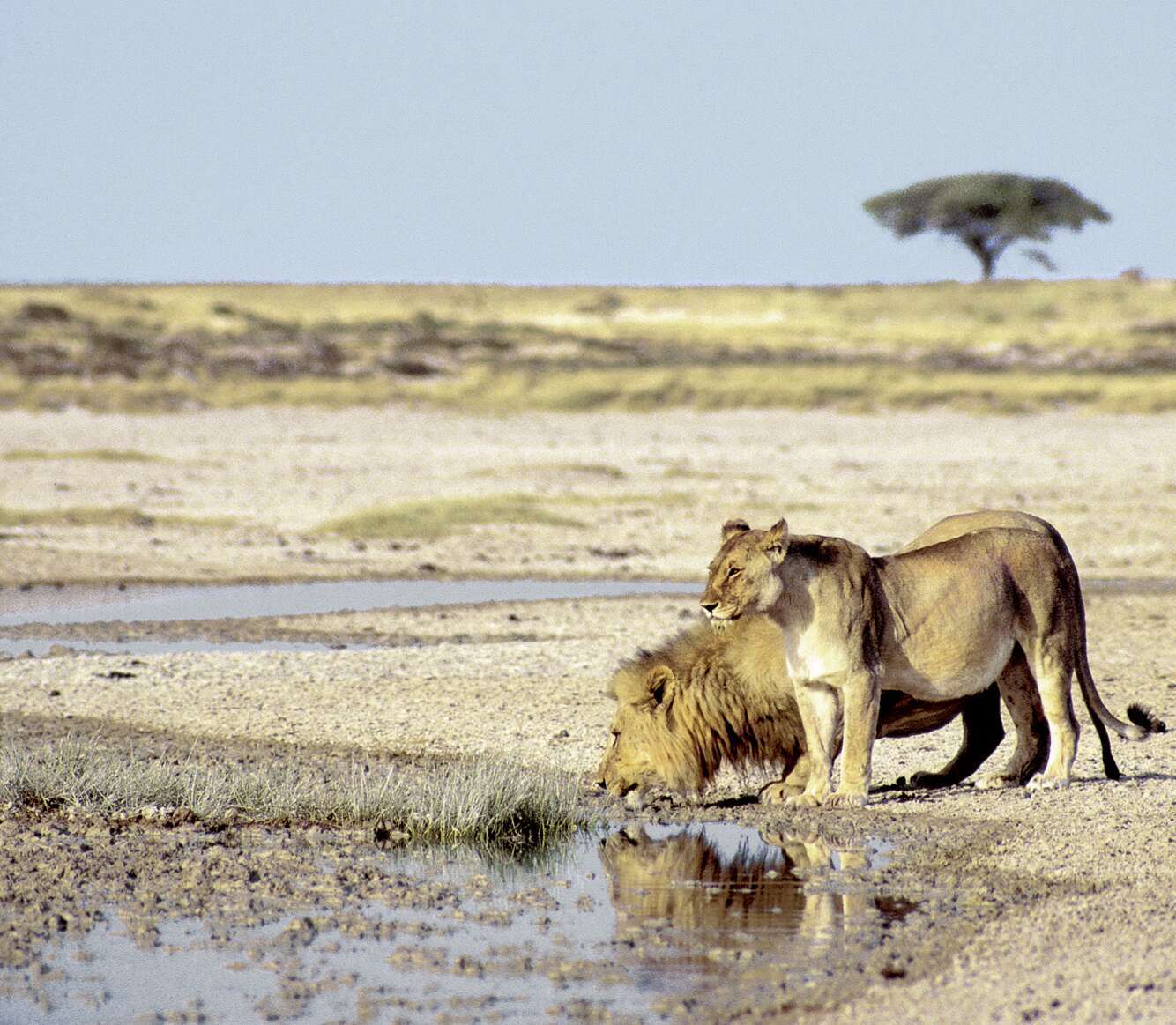
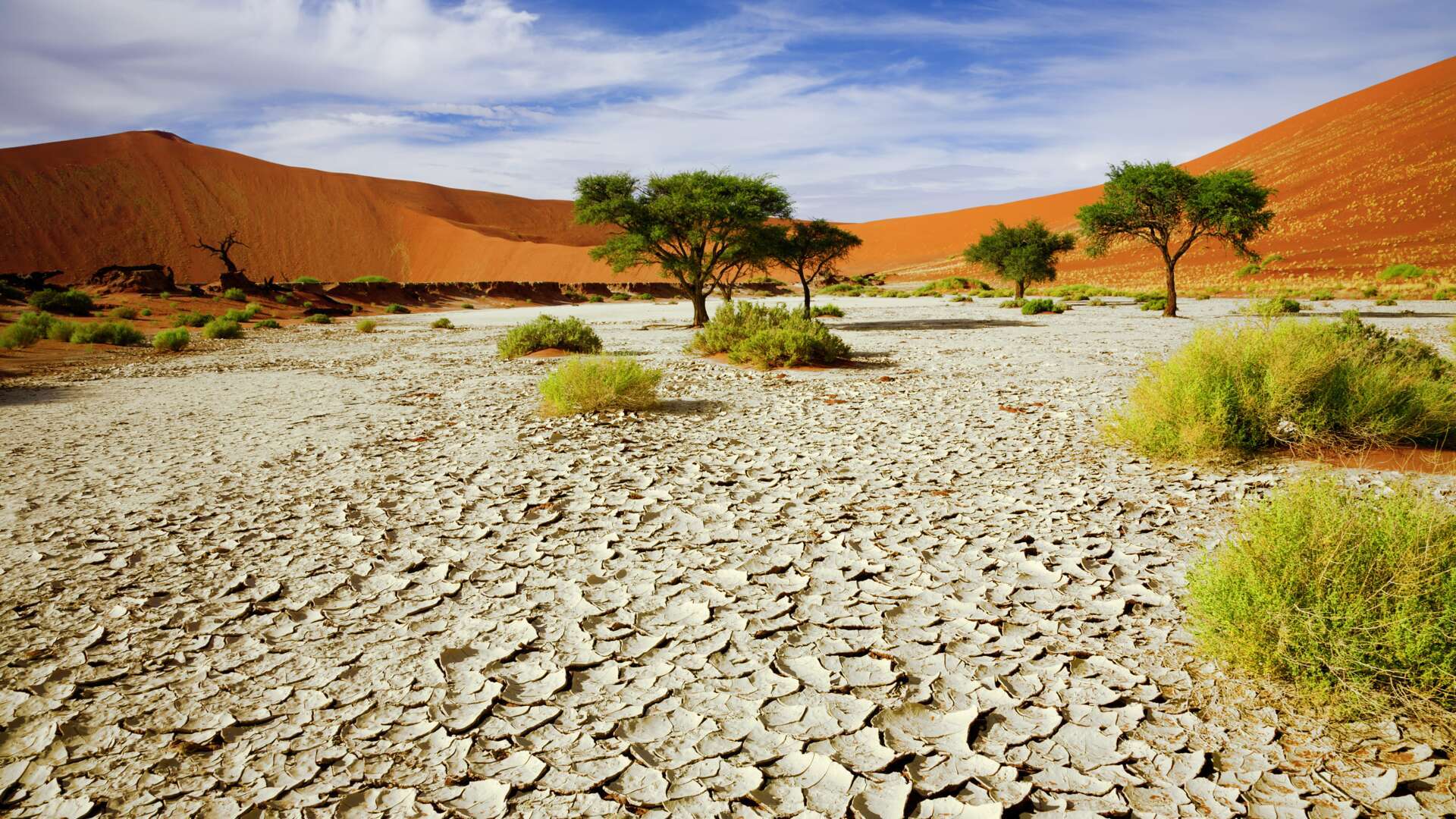

_w=24_h=25.png?v=11cbf9448902371bca1085014eba9ac82a696589)
_w=24_h=25.png?v=11cbf9448902371bca1085014eba9ac82a696589)
_w=24_h=25.png?v=11cbf9448902371bca1085014eba9ac82a696589)